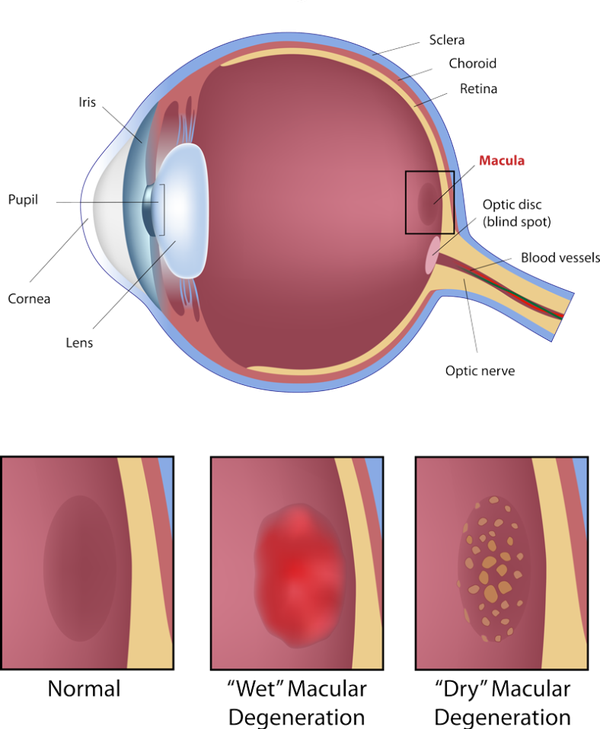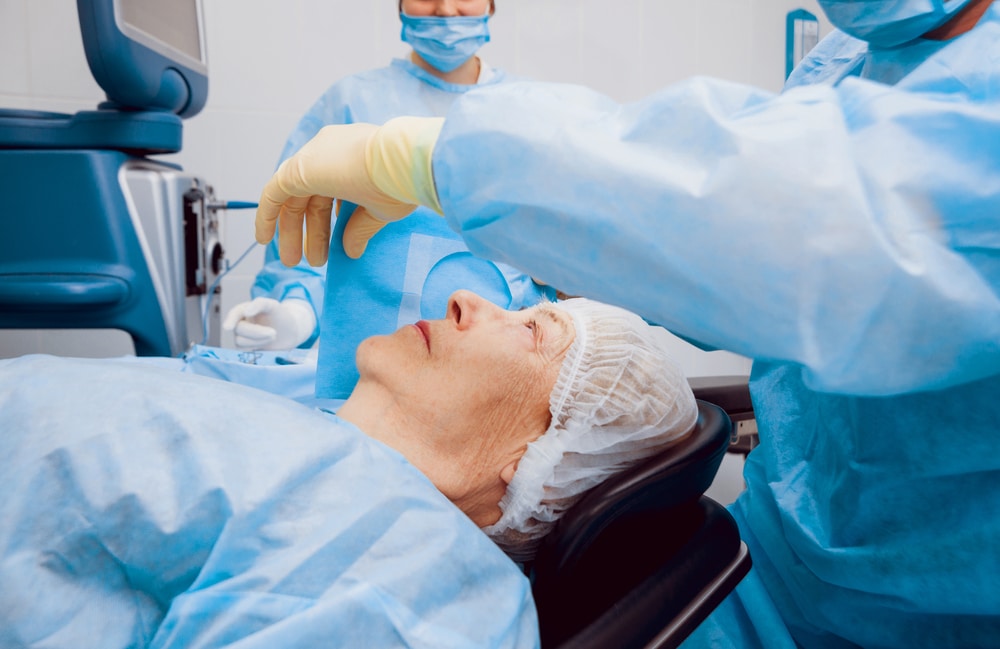Age-related Macular Degeneration (AMD)
Age-related macular degeneration (AMD) is an age-related disease affecting the macula, the central light-sensitive area of the retina responsible for our vision. Symptoms associated with AMD are distortions of central vision, such as seeing that words become smaller, larger, or wavy in the central area of a sentence when reading. Some patients may also discover some level of difficulty seeing the central areas of a person’s face clearly. In most cases, peripheral or side vision is preserved.
AMD is generally divided into 2 types – dry AMD and wet AMD. Most cases of AMD are of the dry type, in which deposits called drusen form under the retina, causing thinning of the retina in the macular area, hence affecting proper function of the macular cells. Visual loss at this stage is gradual, and treatment consists of lifestyle changes such as quitting smoking, protection from UV light, and management of one’s cardiovascular health, particularly for conditions like heart disease, high blood pressure, and high cholesterol. Dietary supplements may be beneficial in helping to control the disease.

Only about 10% of AMD are the wet type. However, some patients with dry AMD may eventually lead to wet AMD, which is often associated with a more sudden drop in eyesight, caused by leakage and bleeding from abnormal retinal blood vessels at the macular area. Wet AMD requires prompt treatment involving photodynamic treatment, laser or injectable anti-vascular endothelial growth factors, to prevent further damage from bleeding vessels, and irreversible central visual loss from macular scarring.
What causes AMD?
There is no known cause to how one can develop age-related macular degeneration. However, there are certain factors that may increase your risk of developing the disease.
These risk factors include:
- Having a family history of macular degeneration
- Being 50 years old and above
- Smoking
- Being overweight or obese
- Having cardiovascular disease and/or high cholesterol

Symptoms of Age-Related Macular Degeneration
Macular degeneration often goes unnoticed in its early stages due to a lack of symptoms and typically isn’t recognized until it affects both eyes. The initial indication is blurred vision that is characterized by a dim, blurry spot in the center of your sight, which may enlarge or darken as time progresses.
Symptoms of macular degeneration may include the following:
• Onset of blurred vision, especially in your central vision
• Shadows or missing areas of vision (i.e dark area in the center of vision)
• Distorted vision, e.g., straight lines may appear wavy
• Problems distinguishing colours, specifically dark colours from other dark colours and light colours from other light colours
• Slow recovery of visual function after exposure to bright light
• Reduced contrast sensitivity, making it harder to distinguish different levels of brightness
If you experience any of these symptoms, see an eye specialist as soon as possible.
What are the available treatment options?
Treatment for Wet Macular Degeneration
- Medications
Anti-vascular endothelial growth factor (anti-VEGF) medications are administered in the form of an injection directly into the eye to stop the growth of new blood vessels.
Treatment for Dry Macular Degeneration
- Vitamins
For some individuals, consuming antioxidant vitamins and minerals may help reduce the risk of vision loss.
AMD and Vision Loss
Not every individual will develop total blindness from AMD although there may be loss of central vision. The vision loss may significantly impact day-to-day activities such as driving or reading.
Early treatment through early diagnosis can help slow down the progression of the condition and minimise vision loss. If you experience any changes in your vision or if you are 50 years old or older, it is important to know your risk for AMD.
With proper care and early management, you can prevent vision loss from AMD. Seek advice from a trusted and experienced eye specialist today.




